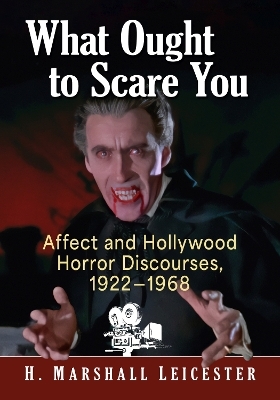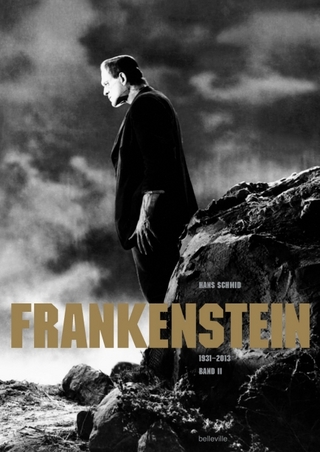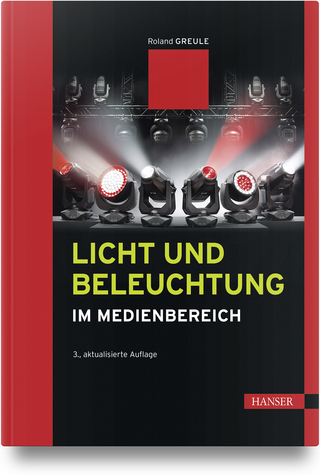
What Ought to Scare You
Affect and Hollywood Horror Discourses, 1922-1968
Seiten
2024
McFarland & Co Inc (Verlag)
978-1-4766-8979-1 (ISBN)
McFarland & Co Inc (Verlag)
978-1-4766-8979-1 (ISBN)
Using the Hollywood studio system (1931-1960) as a historical center, this book performs close readings of classic horror films while asking the following three questions: What about this movie is weird? What does this movie think ought to scare you? If there weren’t monsters in this movie, what would be wrong with these people’s lives?
Using the Hollywood studio system (1931-1960) as a historical center, this book performs close readings of classic horror films (such as Frankenstein and Cat People) while asking the following three questions: What about this movie is weird? What does this movie think ought to scare you? If there weren't monsters in this movie, what would be wrong with these people's lives? These questions guide readers toward the uniqueness of horror films in relation to the way they are classified and the feeling of "horror" that they offer. The horror genre is a collection of culturally-shared elements--words, images, or themes used to signify or evoke horror, because they have been used that way before.
Instead of treating movies as examples of the horror genre through how they evoke feelings from viewers, this book locates the meaning of horror within individual films and shows how movies make their own genealogies and complicate their own scares in an evolution of the genre. It argues that classic horror movies are forms of reception of--and resistance to--the ideas of horror that were current in their historical period. Working historically, the author traces movies' interactions with their precursors and co-conspirators to show how they are the agents of historical changes in the genre and in what we take to be horror.
Using the Hollywood studio system (1931-1960) as a historical center, this book performs close readings of classic horror films (such as Frankenstein and Cat People) while asking the following three questions: What about this movie is weird? What does this movie think ought to scare you? If there weren't monsters in this movie, what would be wrong with these people's lives? These questions guide readers toward the uniqueness of horror films in relation to the way they are classified and the feeling of "horror" that they offer. The horror genre is a collection of culturally-shared elements--words, images, or themes used to signify or evoke horror, because they have been used that way before.
Instead of treating movies as examples of the horror genre through how they evoke feelings from viewers, this book locates the meaning of horror within individual films and shows how movies make their own genealogies and complicate their own scares in an evolution of the genre. It argues that classic horror movies are forms of reception of--and resistance to--the ideas of horror that were current in their historical period. Working historically, the author traces movies' interactions with their precursors and co-conspirators to show how they are the agents of historical changes in the genre and in what we take to be horror.
H. Marshall Leicester is a professor emeritus of literature at the University of California, Santa Cruz. He is the author of articles on medieval literature, opera, and film.
| Erscheinungsdatum | 03.01.2024 |
|---|---|
| Zusatzinfo | 90 photos |
| Verlagsort | Jefferson, NC |
| Sprache | englisch |
| Maße | 178 x 254 mm |
| Themenwelt | Kunst / Musik / Theater ► Film / TV |
| ISBN-10 | 1-4766-8979-2 / 1476689792 |
| ISBN-13 | 978-1-4766-8979-1 / 9781476689791 |
| Zustand | Neuware |
| Informationen gemäß Produktsicherheitsverordnung (GPSR) | |
| Haben Sie eine Frage zum Produkt? |
Mehr entdecken
aus dem Bereich
aus dem Bereich
Filmtechnik, Bildgestaltung und emotionale Wirkung
Buch | Hardcover (2024)
Carl Hanser (Verlag)
CHF 62,95


